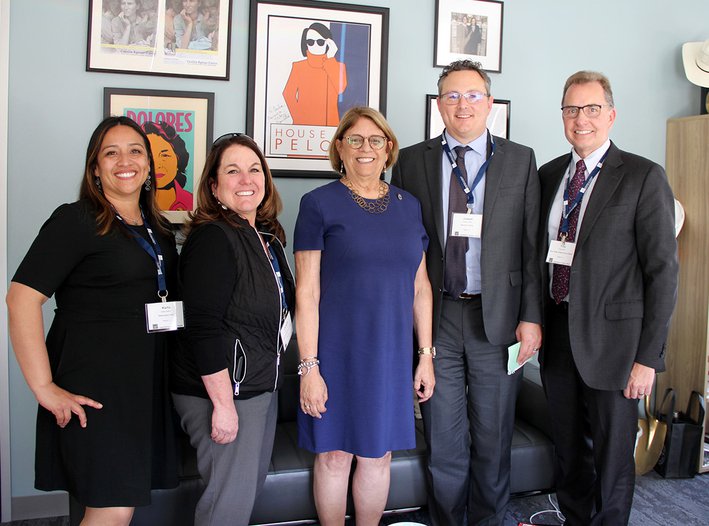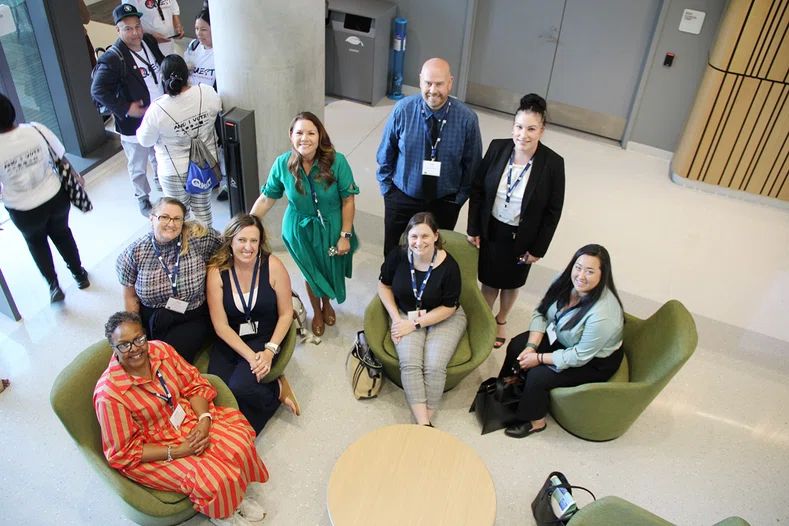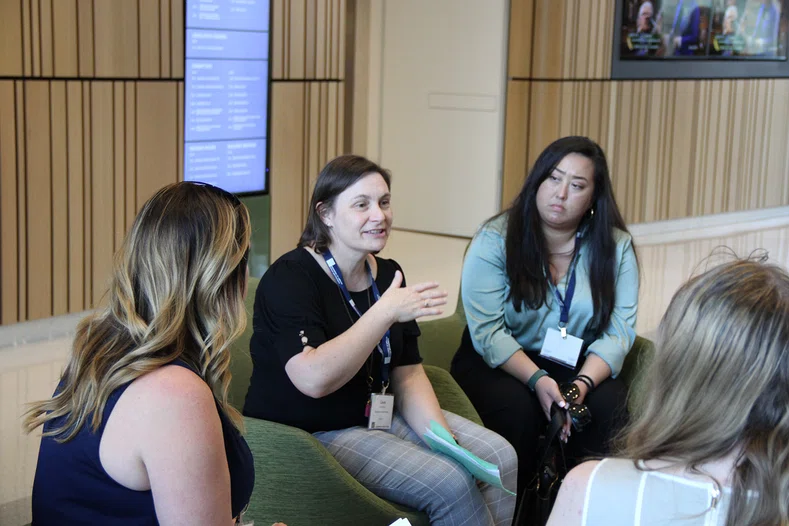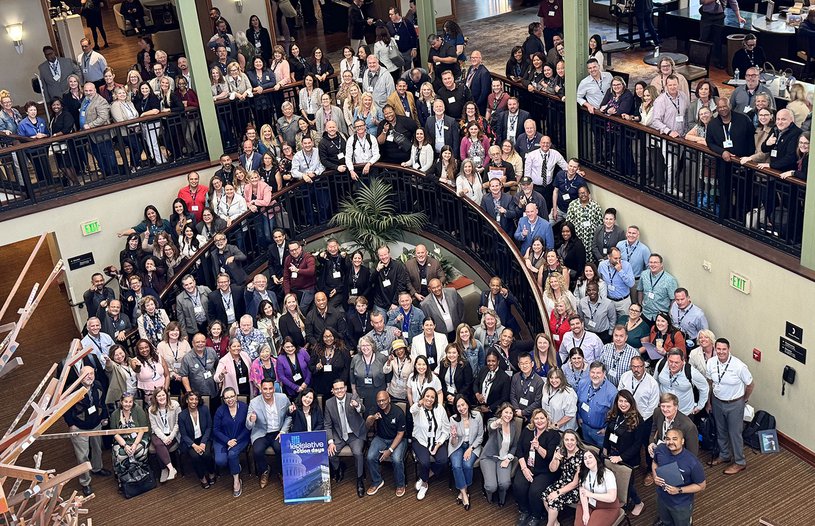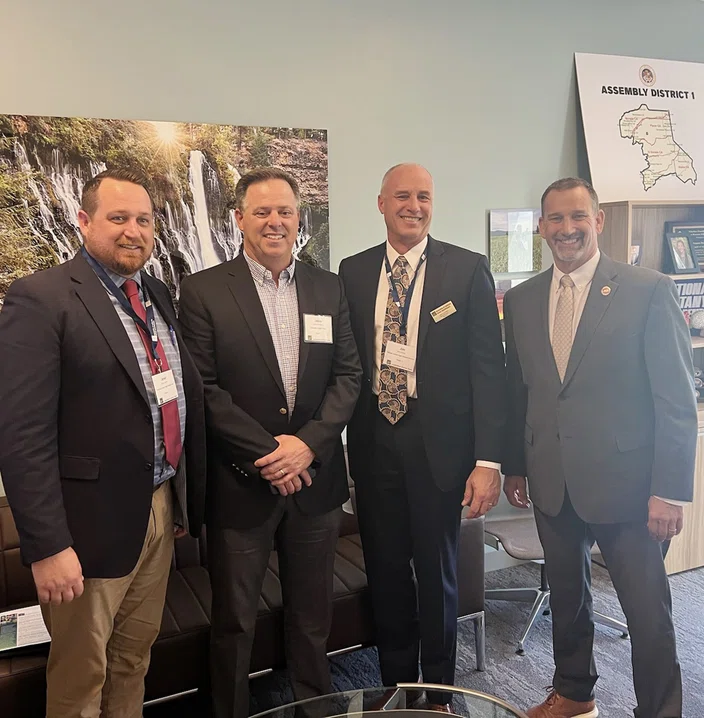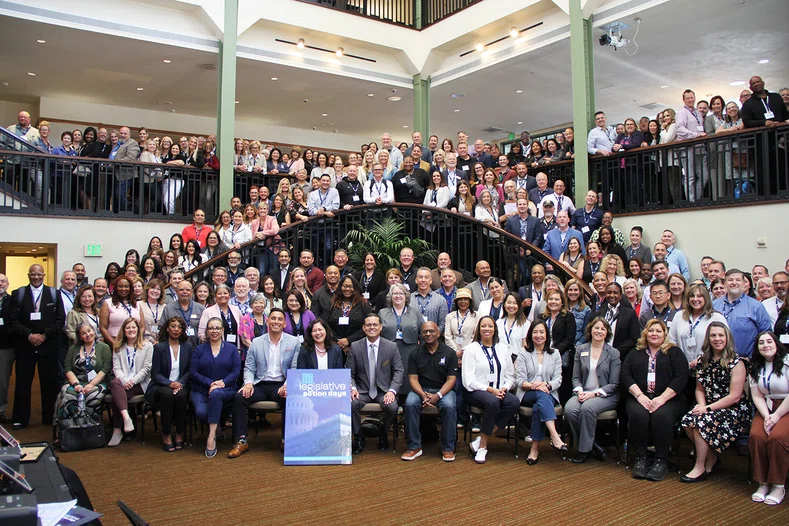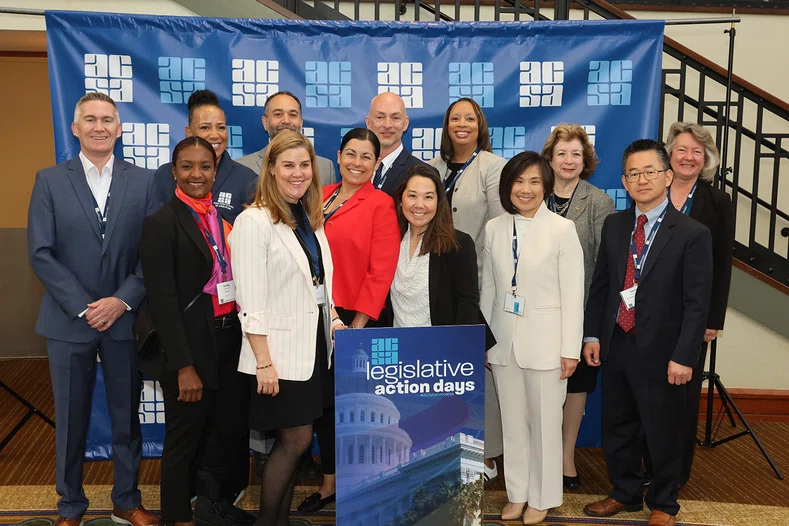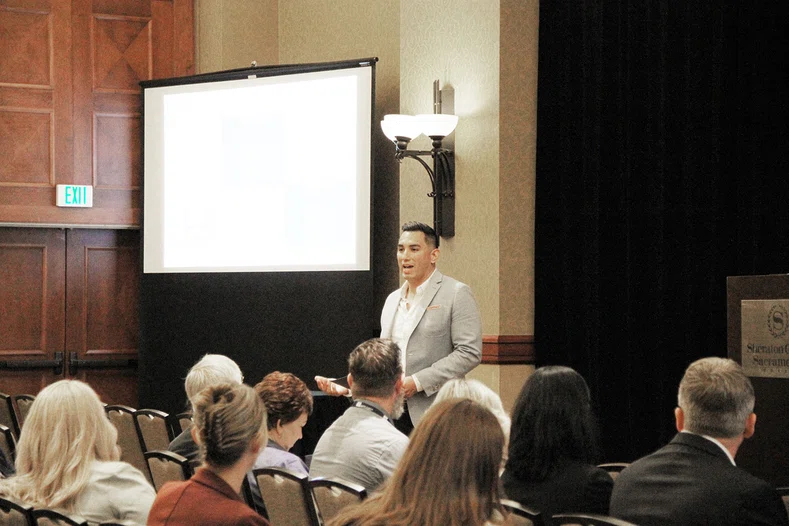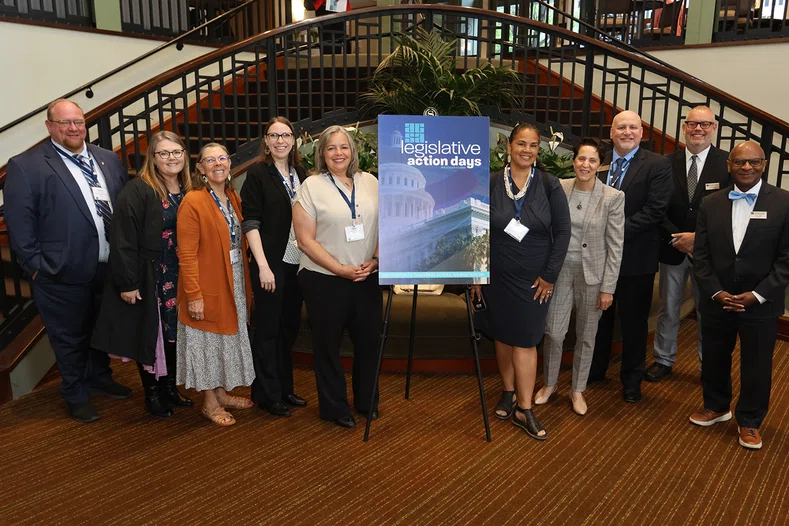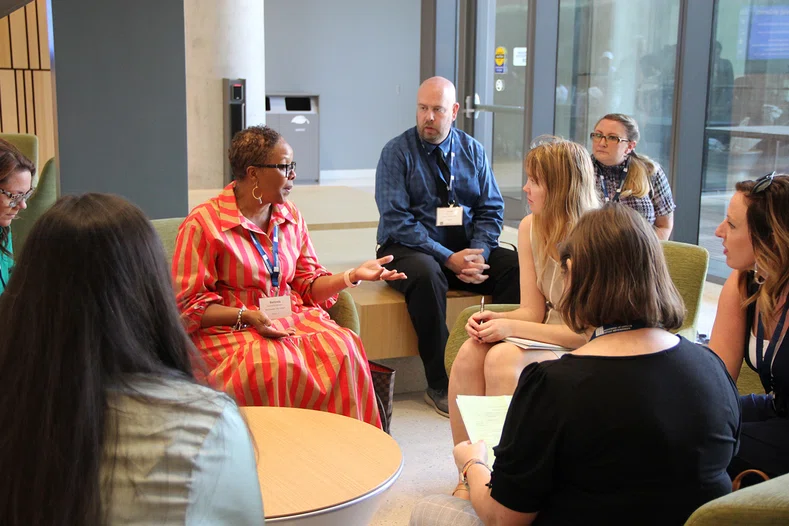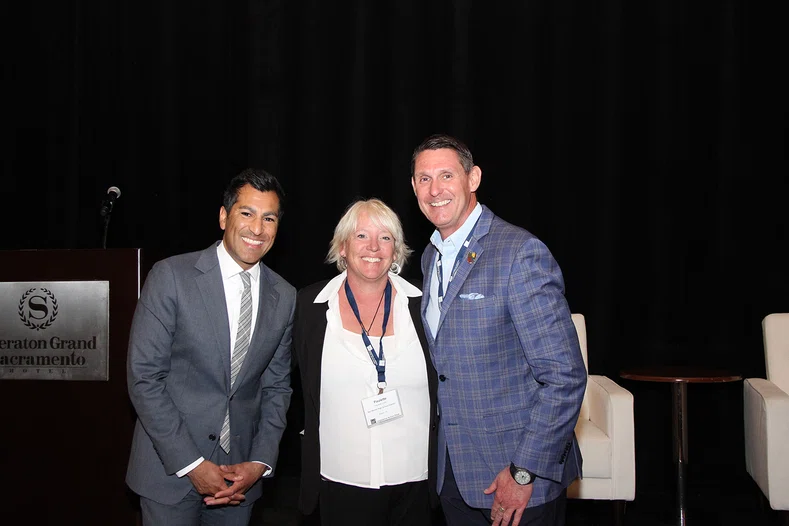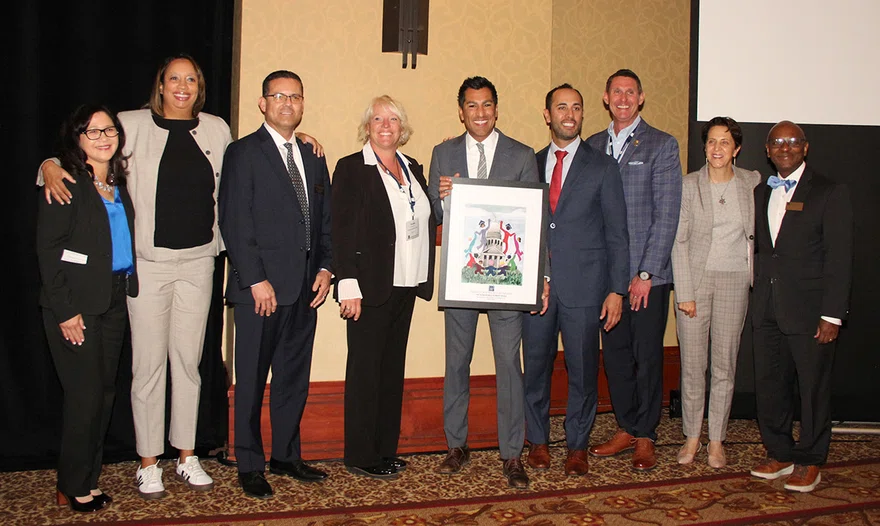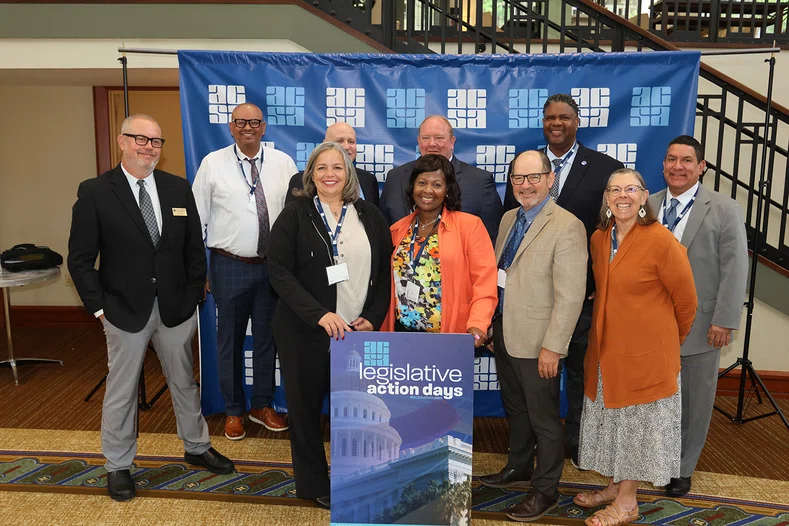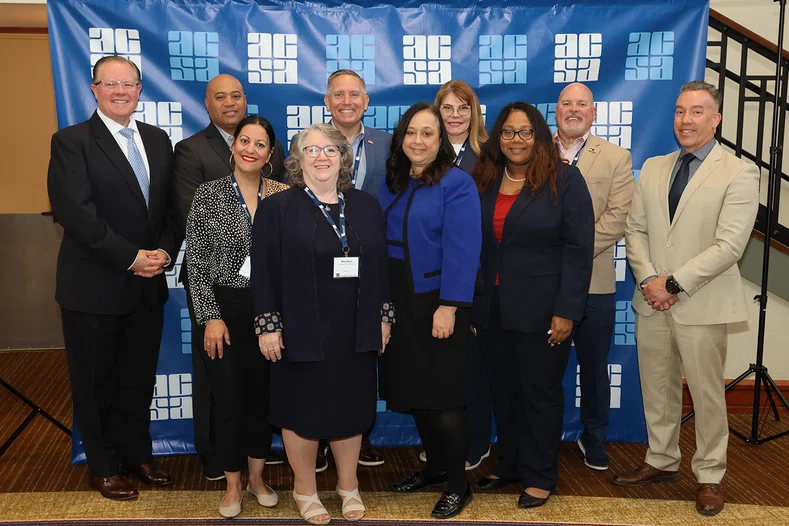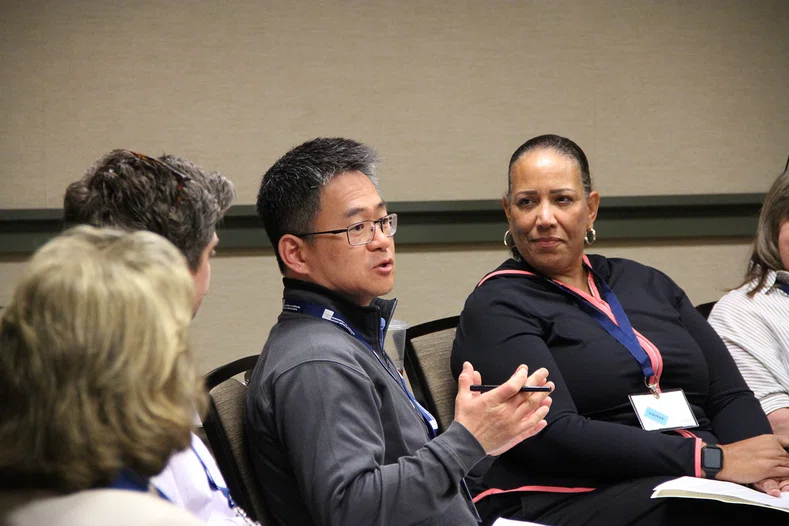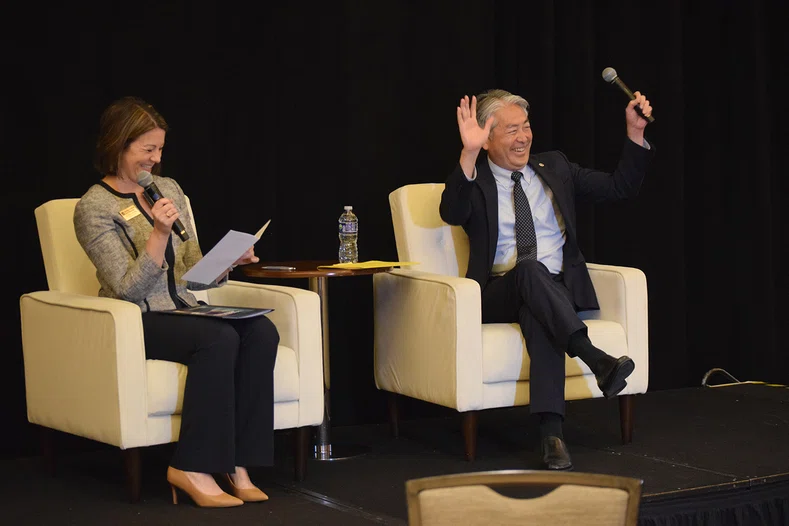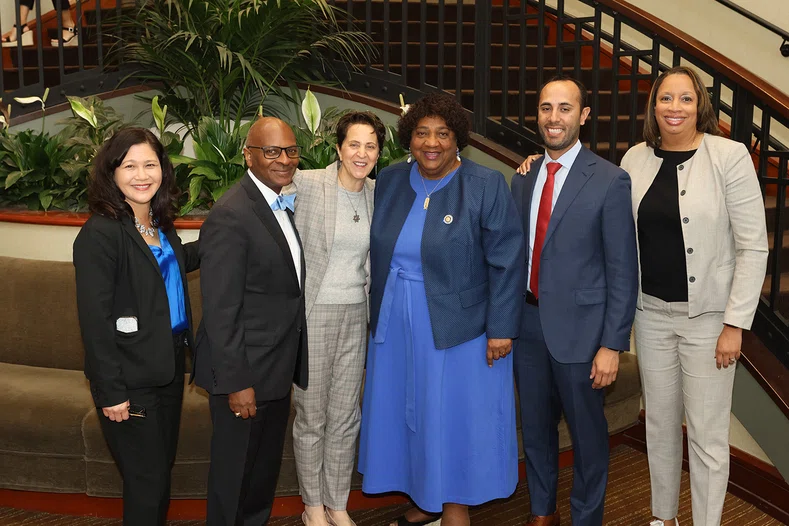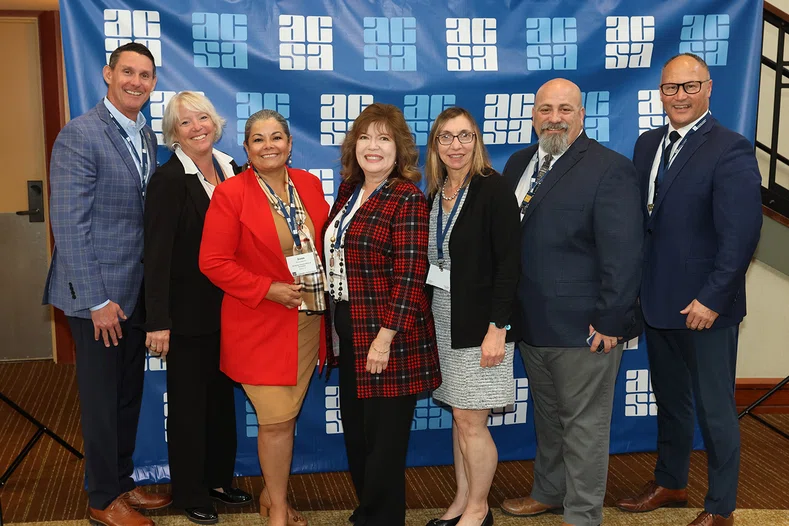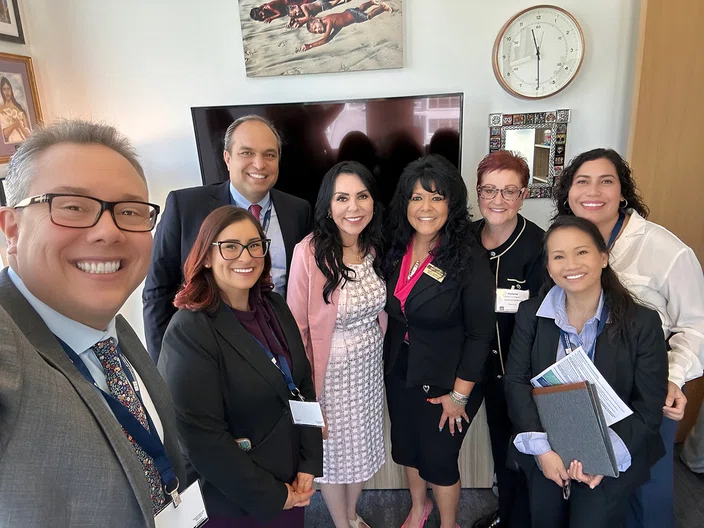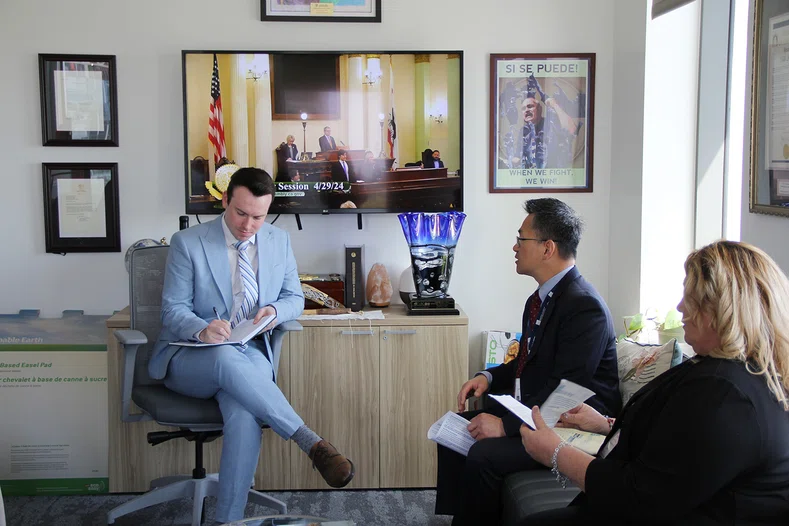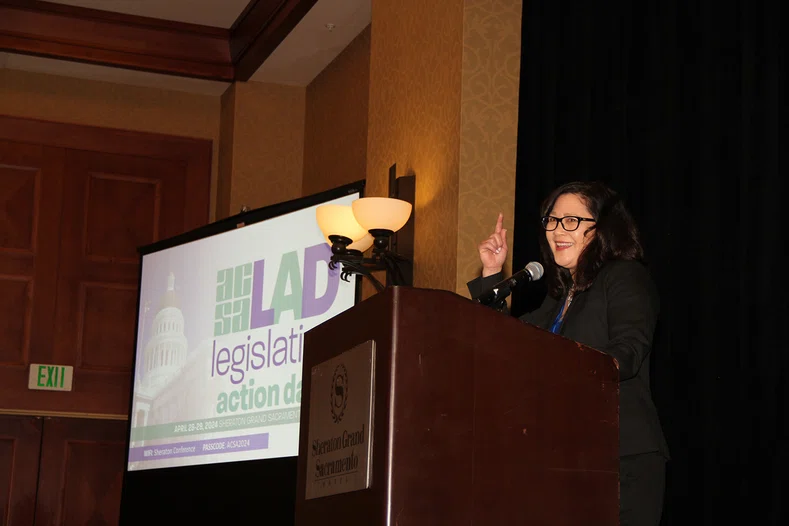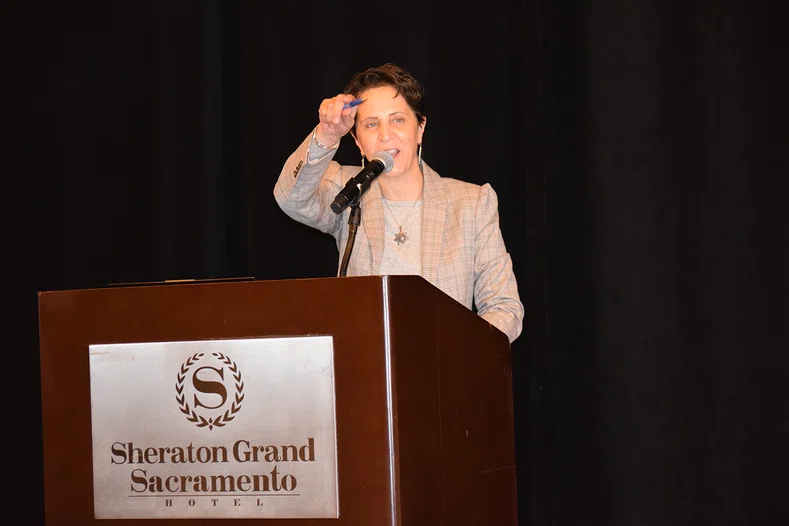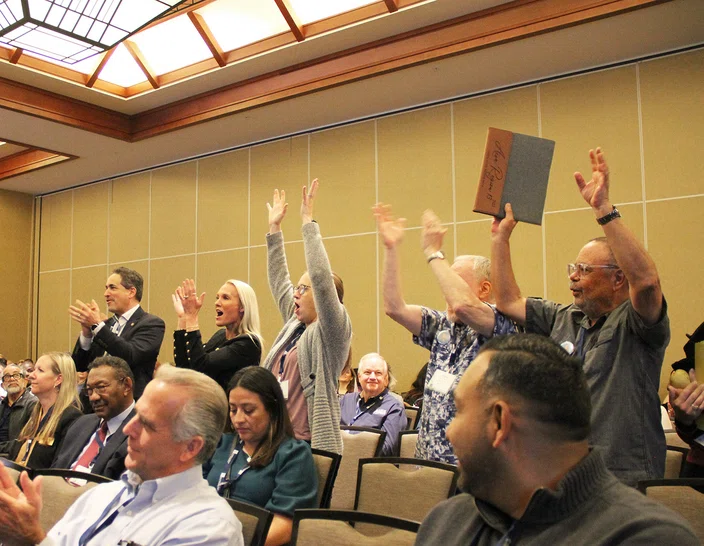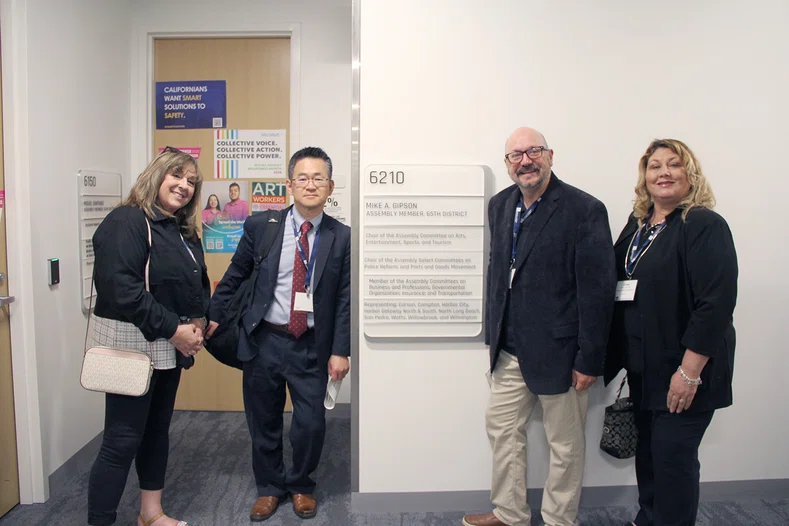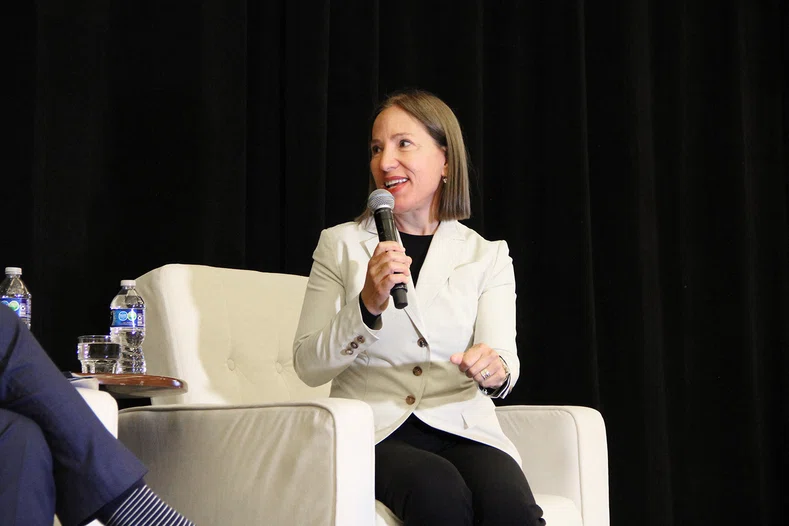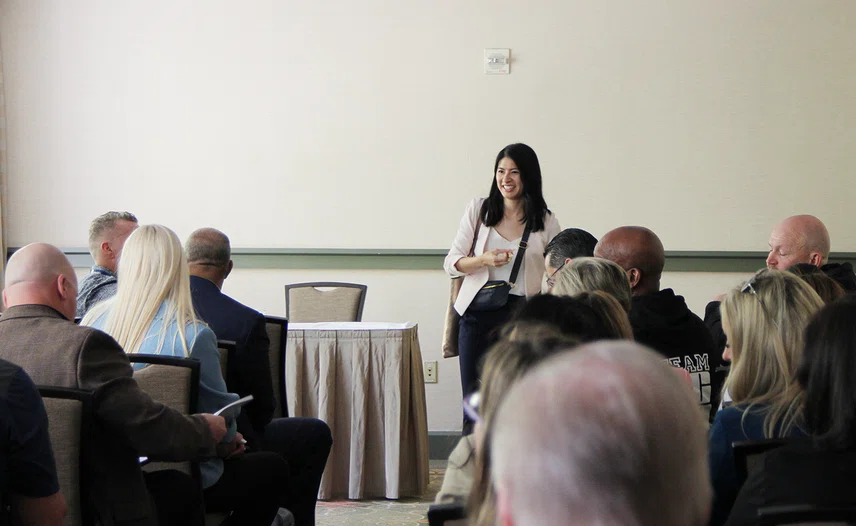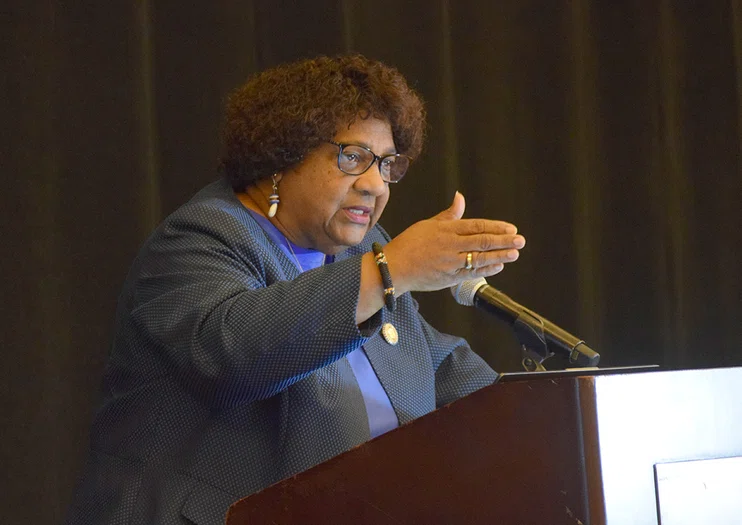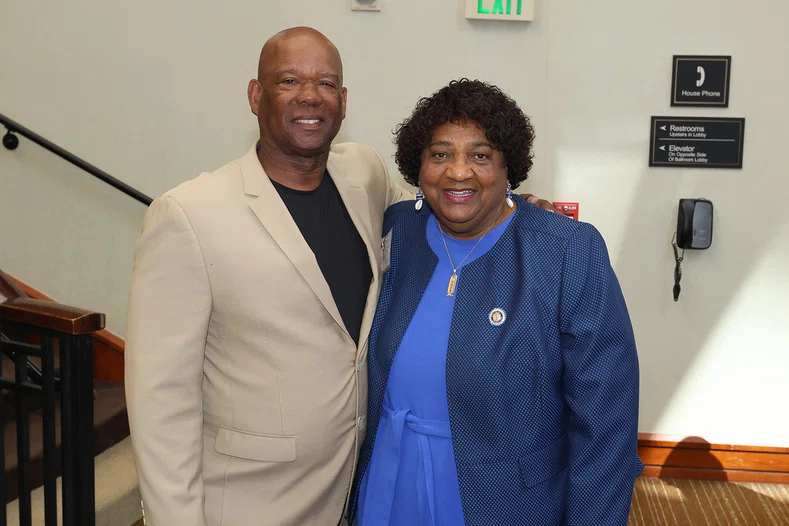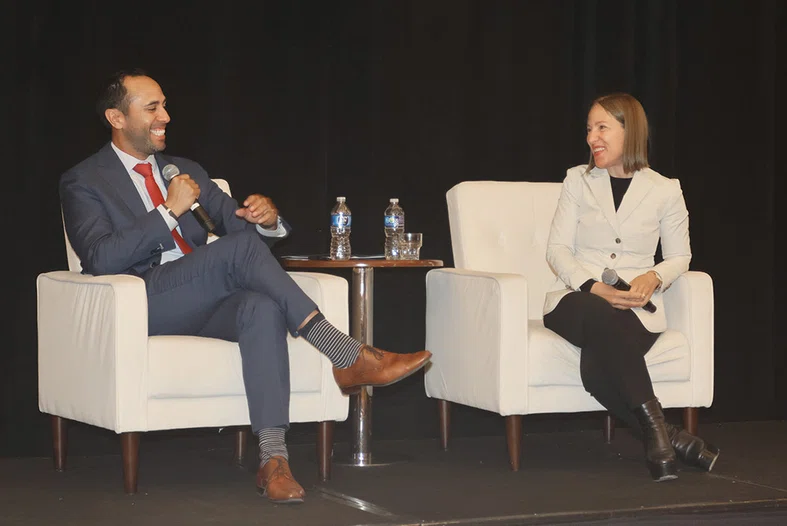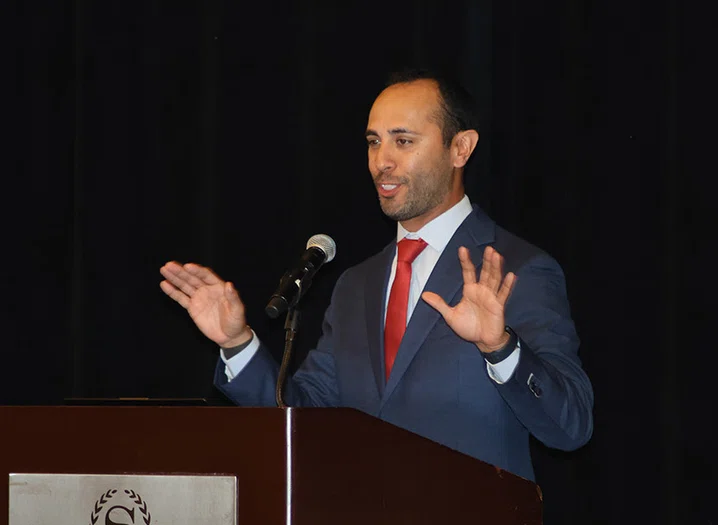School leaders make their voices heard
May 13, 2024
They heard about busted plumbing in bathrooms and gopher holes in the schoolyard. They heard about teachers who couldn’t pass the CSET, so they left the profession. They heard about keeping paraeducators in the classroom when working for Target is easier — and pays just as much. They heard about staff members in charge of coordinating curriculum and professional development who now do nothing but write state-required plans.
Legislators heard all these stories and more from participants in ACSA’s 2024 Legislative Action Days.
On April 28 and 29, more than 250 school leaders stepped away from their school sites and districts to come to Sacramento and advocate for what’s best for students.
“Thanks to each and every one of you for answering the call,” said Iván Carrillo, ACSA senior director of state and federal governmental relations. “We don’t just do this because it feels good. We do this because we know it has impact.”
ACSA Vice President for Legislative Action Gina Potter welcomed participants from all 19 ACSA regions on Sunday.
“There is no mightier voice for our students and for our state’s education system than your voices as experienced and compassionate educational leaders,” she said.
During Sunday’s program, participating school leaders were prepped by ACSA staff on the association’s six legislative priorities:
- Fully fund Prop. 98 and LCFF.
- Emergency school closures.
- Reinstate transitional kindergarten funding commitment.
- Safe and modern schools: School facilities bond.
- Streamlined accountability.
- Staffing solutions.
Carrillo and ACSA Legislative Advocates Megan Baier, Dorothy Johnson and Diana Vu gave participants their analysis of these priorities and answered questions during small breakout sessions.
ACSA’s 19 vice presidents for legislative action met with their delegations to review talking points and discuss what stories they would tell their local representatives working at the state Capitol.
Belinda Bridgewater, ACSA Region 3 vice president for legislative action, spoke to her delegation about what kind of stories will resonate with lawmakers.
“It has to come from your heart,” she told them. “That’s what tomorrow is all about. You want to sometimes yell at the wind when things are not going quite right. ... Well, this is the time.”
ADVERTISEMENT
On Monday, some of the top leaders in California politics spoke to ACSA members about the importance of education in their lives and also to the future of California.
Secretary of State Shirley Weber addressed participants about her hopes for a California education system that has the ability to produce an “army of change.”
ACSA Board Member and Executive Director of San Diego COE Tracy Thompson was at Legislative Action Days and was one of Weber’s students when he was studying Africana studies at San Diego State University.
“In all honesty and as a SDSU football player, I was hoping to take an easy class, and boy was I wrong. Dr. Weber had higher expectations of me than I had of myself,” Thompson said. “As the Executive Director for the San Diego County Office of Education, Juvenile Court and Community Schools, I save lives and contribute to society by having the same high expectations of all my students that Dr. Weber had of me.”
ACSA members also shared a connection with the 2024 ACSA Friend of Education Award winner, Assembly Speaker Robert Rivas. ACSA Board Member and San Benito High School District Superintendent Shawn Tennenbaum presented the award to Rivas, who attended school and later became a teacher at Hollister High School.
Rivas recognized Tennenbaum’s leadership in creating model school programs and that of San Benito HSD Director of Special Education Paulette Cobb, who was Rivas’ first boss when he was hired as a special education teacher. Rivas, who grew up in poverty and lived in migrant farmworker housing as a child, credited education with transforming his life.
“Good schools expanded my horizons personally and sparked opportunities for my personal and professional growth,” Rivas said. “It opened new doors for me. I would not be here as speaker without California’s excellent, excellent schools, and that’s why I admire all of the work that you all do.”
Several first-time participants came to the state capital to use their voice on behalf of students.
Tuesday Stoffers, a principal in ABC USD, said she was participating in her first Legislative Action Days to make sure government is doing what’s best for students.
“[Legislators] have the best intentions in mind, but because they don’t speak to educators when they lay out that idea, it sometimes doesn’t work the way they thought it would,” she said. “I’m hoping by sharing our stories they can understand how their decisions will impact our K-12 system and I’m hoping we can build a partnership so we can have a stronger K-12 system in California.”
ADVERTISEMENT
Jenna Murata, a first-time participant and principal from West High School in Torrance USD, said she wanted to preserve the level of resources her school is providing for students.
“Having a little bit of flexibility with spending has allowed us to be more creative in the ways that we’re supporting kids, and so we’d like to be able to continue some of those actions,” she said, adding, “The reason that I’m a part of ACSA is just because I am always inspired by the people in the room and I feel like I learn so much from everyone who’s here.”
Most of the more than 120 meetings planned with legislators were held at the Capitol Annex “Swing Space” while some were held online.
During their meetings Monday and throughout the week, many school leaders spoke about the “plandemic” — the increasing number of state-required plans and reports that require significant staff time and resources to develop and complete, presenting challenges for small districts and those with limited staff.
Laura Bariel, teaching and learning director at Natomas Charter School, shared her desire to have all the different reports be combined into one report that aligns with the LCAP.
“My job is supposed to cover professional development, mentoring, curriculum, instruction/assessment, but since COVID and the number of different reports that need to be written, that’s now the bulk of what I do,” she said. “I would like them to consolidate it so we have more time with the students and doing professional development.”
This year’s advocacy days were critically important as the state is anticipating a budget deficit. School leaders asked legislators to prioritize education funding to maintain stability for students and families.
“I’ve been in education long enough that this is my third economic downturn I’ll be navigating,” said Joe Wood, executive director of Natomas Charter School, in a meeting with Assemblymember Cecilia Aguiar-Curry, before stressing the importance of preserving funding to retain key staff.
Christina Goennier, superintendent of Esparto USD, shared her experience with lightning-caused wildfires a few years ago and the struggles of opening school when there’s no internet and staff have been evacuated.
“When an emergency like that happens, we’re not going into teaching mode. The priority becomes about the community’s safety,” she told Aguiar-Curry, urging her to reject the governor’s proposal to mandate that schools offer remote instruction on the sixth day after an emergency closure.
Holly Hennessy, a principal in Paramount USD, said she was pleased with her group’s meetings and the attention they received from legislators and staff.
“It felt good to say it to somebody,” Hennessy said. “It was my first experience, so it felt really good for me. It was a great first experience because now I know I want to do more.”
Things we heard at ACSA’s 2024 Legislative Action Days:
“This is not spending, this is investing.” California Lt. Gov. Eleni Kounalakis sat down with ACSA Executive Director Edgar Zazueta to discuss her support for edu-cation funding, her experience as the daughter of Greek immigrants and her bid for governor. Education is a top priority for Kounalakis, who also sits on the University of California Board of Regents, the California State University Board of Trustees and is the first lieutenant governor to sit on the California Community Colleges Board of Governors. “This is the formula for California’s success: Immigration plus education equals the fifth largest economy in the world and the largest majority minority democracy in the history of the world.”
“The one thing that burns my heart the most is what we don’t do for kids.” California Secretary of State Shirley Weber spoke about the powerful role education plays in lifting children out of poverty and in giving people the critical thinking skills to defend democracy. She cited her own story as the daughter of a sharecropper whose family moved to the housing projects in Los Angeles and who went on to earn three degrees including a doctorate by the age of 26. “When I look at where we are and see the excuses we make with the tremendous challenge that lies ahead, my heart is broken, because I know what we can do — because it was done for me.”
“Don’t sugarcoat it.” ACSA President Parvin Ahmadi encouraged to be the best storytellers to convey the day-to-day challenges faced by educators. “I want to challenge you today to be real and transparent about the challenges you’re facing, you’re seeing, you’re hearing and you’re feeling.”
“That’s your house.” ACSA President Edgar Zazueta gave participants advice to be authoritative and not intimidated by the grandeur of the buildings around the state Capitol. “It belongs to you folks. It belongs to your students. And I think remember-ing that ... is very important.”
“There’s always the policy and there’s the politics.” During a sit-down interview with ACSA Legislative Advocate Dorothy Johnson, Assemblymember Al Muratsuchi shared that he often looks to ACSA when citing reasons to adopt a policy. As chair of the Assembly Education Committee, he also has to balance the other forces seeking to shape education policy. “One of my biggest challenges is how do we get to the right policy ... given the politics.”




